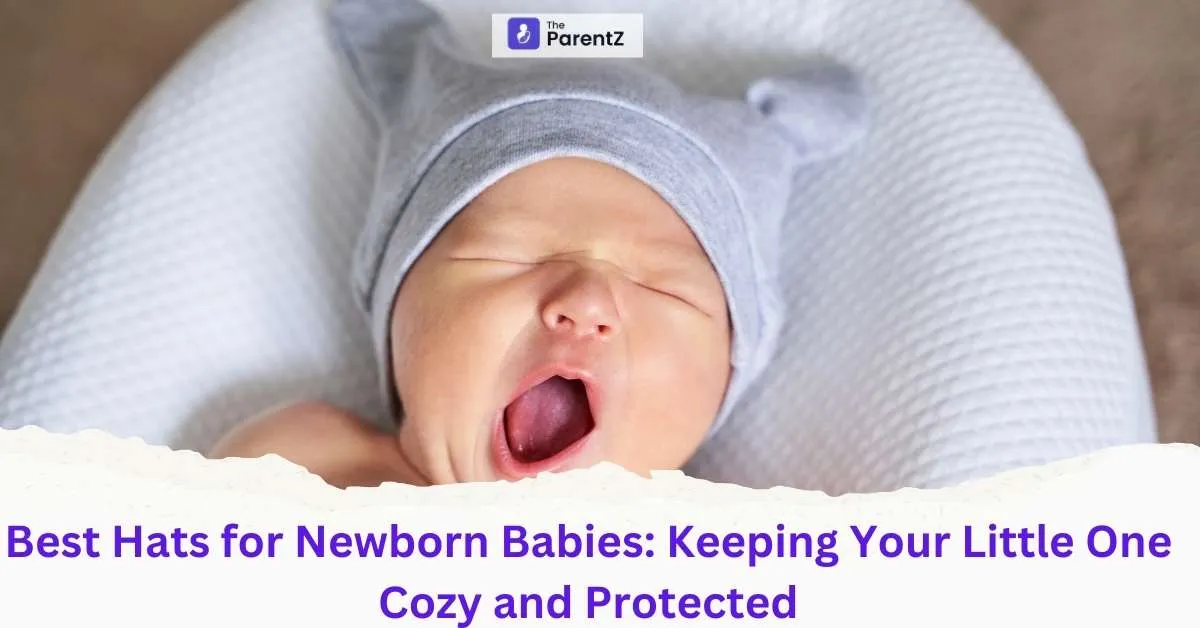When it comes to caring for your newborn, even the smallest details matter, including choosing the right hat. A newborn’s head is particularly sensitive to temperature changes, making hats an essential accessory in their wardrobe. Whether it’s to keep them warm during colder months, shield them from the sun, or simply add an adorable touch to their outfit, selecting the best hat requires thoughtful consideration.
Why Hats Are Important for Newborns
Newborns lose heat quickly through their heads due to their underdeveloped thermoregulation systems. In the first few months of life, hats play a vital role in helping them maintain their body temperature, especially in cooler climates or immediately after birth. Additionally, a hat can protect their delicate skin from harmful UV rays when they are outside. Beyond functionality, hats also provide a sense of comfort and security, mimicking the snugness of the womb.
Features to Look for in a Newborn Hat
When choosing a hat for your newborn, prioritize softness, fit, and breathability. Since your baby’s skin is highly sensitive, opt for hats made from soft, hypoallergenic materials like organic cotton or bamboo. These fabrics are gentle on the skin and reduce the risk of irritation or rashes. The fit of the hat is equally important; it should snugly cover your baby’s head and ears without being too tight or causing discomfort. Hats with elastic bands or adjustable ties ensure a secure fit, but always check that they don’t leave marks or cause irritation.
Breathability is another key factor. While it’s important to keep your baby warm, overheating can be dangerous. Lightweight, breathable fabrics help regulate temperature and prevent excessive sweating. For summer months, consider hats with wide brims or UPF protection to shield your baby’s face and neck from the sun. Winter hats, on the other hand, should offer insulation and cover the ears completely to protect against cold winds.
Popular Types of Hats for Newborns
There are several types of hats available for newborns, each designed to meet specific needs and preferences:
- Beanies: These are classic and versatile hats that provide warmth and comfort. Beanies are typically made of soft, stretchy materials like cotton or knit fabric, making them ideal for everyday use.
- Knot Hats: Featuring an adjustable knot at the top, these hats allow you to customize the fit as your baby grows. They are stylish and practical, perfect for newborns in their early weeks.
- Sun Hats: Designed for outdoor use, sun hats come with wide brims that shield your baby’s face, neck, and ears from harmful UV rays. Many sun hats also include chin straps to keep them securely in place.
- Winter Hats: For colder months, fleece-lined or woolen hats are a great choice. These hats often feature ear flaps and sometimes even attachable mittens or scarves for added warmth.
- Bonnets: A traditional yet timeless option, bonnets are tied under the chin and provide excellent coverage for your baby’s head and ears. They are often made of lightweight cotton or knit fabric, suitable for various seasons.
- Caps with Ear Flaps: These hats are designed to provide extra warmth by covering the ears entirely, making them perfect for colder climates.
Safety Considerations
While hats are beneficial, safety should always come first. Avoid hats with small embellishments like buttons or beads that could pose a choking hazard. Strings or ties should be short and securely attached to prevent the risk of strangulation. Always monitor your baby while they are wearing a hat, especially during sleep, as overheating or restricted breathing can occur. It’s generally recommended to remove hats when your baby is indoors or sleeping in a warm environment.
Choosing the Best Hat for Your Baby
Selecting the best hat for your newborn depends on the season, your baby’s specific needs, and personal preferences. In colder months, a fleece-lined or knitted beanie can keep your baby cozy during outdoor walks. For sunny days, a lightweight cotton hat with UPF protection will shield their delicate skin while keeping them comfortable. If you’re looking for an all-season option, organic cotton hats with adjustable features are a versatile choice.
Brands like H&M, Carter’s, and Babyhug offer a wide range of affordable and stylish options. For parents who prioritize sustainability, consider brands like Kyte Baby or Burt’s Bees Baby, which specialize in organic and eco-friendly materials. Regardless of the brand, always check for certifications that guarantee the fabric’s safety and quality.
Caring for Your Baby’s Hat
To maintain hygiene and extend the lifespan of your baby’s hat, follow proper care instructions. Wash hats with a gentle, baby-friendly detergent to avoid skin irritation. Handwashing or using a delicate cycle in the washing machine is recommended for materials like wool or bamboo. Ensure hats are completely dry before use to prevent dampness that could irritate your baby’s skin.
Final Thoughts
A well-chosen hat is more than just an accessory for your newborn; it’s an essential part of their care. From keeping them warm in winter to protecting them from the sun in summer, the right hat ensures your baby’s comfort and safety. By considering factors like material, fit, and purpose, you can select a hat that meets your baby’s needs while adding a touch of style to their adorable wardrobe. With the right hat, your little one will not only stay cozy and protected but also look irresistibly cute





Be the first one to comment on this story.